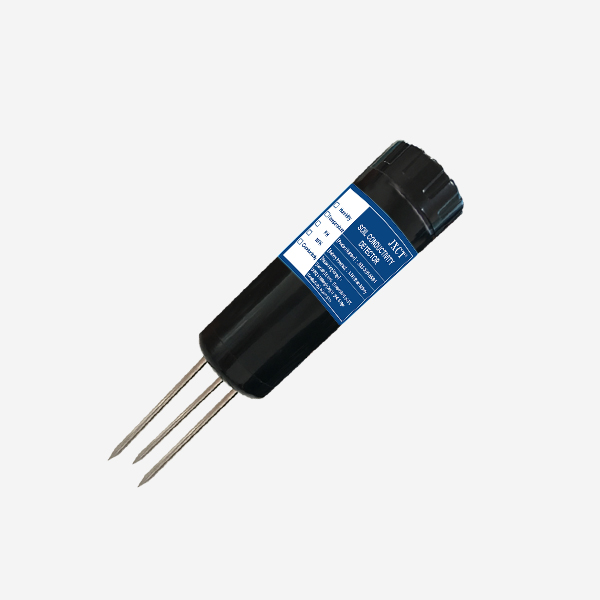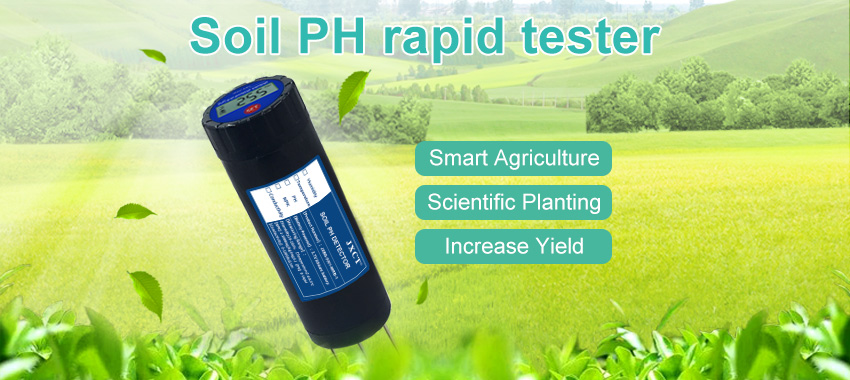Maintaining proper soil moisture is essential for the healthy growth of plants in a garden. Overwatering or underwatering can have detrimental effects on plant health and can lead to diseases, root rot, or even plant death. To ensure optimal watering, gardeners can rely on soil moisture sensors. These sensors are designed to measure the moisture content in the soil and provide accurate data for efficient garden irrigation. In this article, we will explore the benefits of using soil moisture sensors in garden irrigation and discuss different types of sensors available.

Benefits of using soil moisture sensors:
Water conservation:
Soil moisture sensors help conserve water by providing data on the actual moisture content in the soil. With this information, gardeners can avoid overwatering and only irrigate when necessary. This not only saves water but also reduces water bills and promotes sustainable gardening practices.
Prevents plant stress:
Underwatering or overwatering can cause stress to plants. Soil moisture sensors help prevent plant stress by ensuring that plants receive the right amount of water at the right time. This promotes healthy root development, improves plant growth, and enhances overall plant vigor.
Time-saving:
Soil moisture sensors automate the irrigation process and eliminate the need for manual monitoring. Instead of guessing when to water, gardeners can rely on the data provided by the sensors to determine the optimal watering schedule. This saves time and effort and allows gardeners to focus on other aspects of garden maintenance.
Customizable irrigation:
Different plants have varying water requirements. Soil moisture sensors allow gardeners to customize the irrigation schedule based on the specific needs of different plants. This ensures that each plant receives the appropriate amount of water, promoting optimal growth and reducing water wastage.
Types of soil moisture sensors:
Tensiometers: Tensiometers are one of the oldest and simplest types of soil moisture sensors. They consist of a ceramic cone connected to a water-filled tube. The ceramic cone is buried in the soil, and as the soil moisture level changes, it affects the tension in the water-filled tube. Tensiometers measure soil moisture based on the tension required to extract water from the soil.
Capacitance sensors:
Capacitance sensors measure soil moisture by determining the dielectric constant of the soil. These sensors have two electrodes placed in the soil, and the capacitance between the electrodes changes with the moisture content. Capacitance sensors are highly accurate and can be used in different soil types.
Resistance sensors:
Resistance sensors measure soil moisture by measuring the electrical resistance between two or more electrodes. As the soil moisture increases, the electrical conductivity of the soil changes, which is then measured by the sensor. Resistance sensors are affordable and widely used in garden irrigation systems.
Time domain reflectometry (TDR) sensors:
TDR sensors measure soil moisture by sending electromagnetic pulses into the soil and measuring the time it takes for the pulses to bounce back. The time taken is directly related to the soil moisture content. TDR sensors provide accurate and reliable measurements but are generally more expensive than other types of sensors.
Gypsum block sensors:
Gypsum block sensors consist of a porous block made of gypsum or another hygroscopic material. The block is buried in the soil, and as the soil moisture changes, the electrical resistance of the block changes. Gypsum block sensors are affordable and suitable for long-term monitoring.
Frequency domain reflectometry (FDR) sensors:
FDR sensors measure soil moisture by analyzing the frequency response of an electromagnetic field in the soil. These sensors provide accurate and continuous measurements of soil moisture and are commonly used in research and agricultural applications.

In conclusion
soil moisture sensors are valuable tools for efficient garden irrigation. They help conserve water, prevent plant stress, save time, and allow for customizable irrigation based on plant needs. Various types of soil moisture sensors, such as tensiometers, capacitance sensors, resistance sensors, TDR sensors, gypsum block sensors, and FDR sensors, are available to cater to different gardening requirements. By using soil moisture sensors, gardeners can ensure optimal soil moisture levels, leading to healthier plants, reduced water consumption, and a thriving garden.
